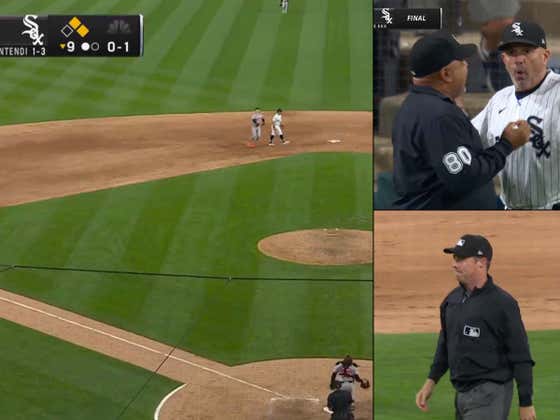You really hate to see the team with the highest payroll that is also the oldest team have a losing record.
Wait. No you don’t.
PS It’s the Mets
Upvote
0
Follow along with the video below to see how to install our site as a web app on your home screen.

Note: This feature currently requires accessing the site using the built-in Safari browser.
You really hate to see the team with the highest payroll that is also the oldest team have a losing record.
Wait. No you don’t.
PS It’s the Mets
Skenes destroyed the Chubs today. 6 inning, no- hitter with 11 K's. At least he'll get the win this time after they blew it for him last time



UMP SHOW: White Sox-Orioles Game Ends On The Dumbest Interference Call You'll Ever See
UMP SHOW: White Sox-Orioles Game Ends On The Dumbest Interference Call You'll Ever Seewindow.htlbid=window.htlbid||{},htlbid.cmd=htlbid.cmd||[],htlbid.cmd.push((function(){htlbid.setTargeting("pagetyp...www.barstoolsports.com
UMP SHOW: White Sox-Orioles Game Ends On The Dumbest Interference Call You'll Ever See
I don't really believe what I just watched. White Sox threatening to tie it in the 9th against the O's and the game ends on that? How can a professional umpire make that call? Yes, by the exact letter of the law I suppose it's correct, but use some common sense one time for me.
I thought it was ticky tacky but you said it yourself.by the exact letter of the law I suppose it's correct

bruhNah it was the right call. People calling it dumb just don't understand the game.
OH and fuck Barstool.
Mike I love you man but that was an awful call lol. I was watching it liveSo the bigger issue is just because it's a pop up on the infield with runners at 1st and 2nd (or bases loaded) and less than 2 outs, it's not automatically an infield fly unless it's in the course of a regular action of the fielder.
IF a runner impedes the fielder to where it doesn't appear to be a regular action (meaning delaying him from getting to the spot), the umpire is under no obligation to call it an infield fly if, in his judgement, the pop up is not a regular play for the field. Therefore, the delay caused by the runner could potentially lead to the ball dropping and the runners all being safe.
It's 100% the correct call. Having had this very scenario called for and against me when I coached softball, I had flashbacks last night watching it
For reference: https://www.littleleague.org/university/articles/explanation-infield-fly-rule/
The little league rule is more or less verbatim to the MLB and NFHS rule when it comes to the "ordinary effort" part.
So was I - between calling Hyde every name in the book for putting in Heasley and all that, it was a great call....by the rules in the book, it was right - the ump calling the interference wouldn't necessarily be the one calling the infield fly either.Mike I love you man but that was an awful call lol. I was watching it live



